Winford Centre multisectoral solutions for learners with neurodevelopmental conditions
[ad_1]
THE Winford Centre for children and women and stakeholders in the education sector have advocated the adoption of multi-sectoral, culturally relevant and collaborative approaches in addressing the issue of educating children with neurodevelopmental conditions in Nigeria and other African countries.
This call was made during a recent two-day virtual conference organised by The Winford Centre, aimed at providing an opportunity for policymakers, practitioners, educators and families from different African countries to discuss issues on education provision in the early years stage.
It was also meant to explore current practices that could be leveraged and scaled to ensure that more children with neurodevelopmental conditions have access to meaningful, accessible and inclusive education.
The founder of the organisation, Mrs Basirat Razaq-Shuaib, in her address emphasised the need to move away from the dominant deficit narrative within the continent that things are not working, and look inwards at the things that are working and how they can be strengthened.
She added that while high-level international and national inclusive education commitments are needed, there is a huge gap between those commitments and the lived realities of families and educators.
“Many of the problems faced by children who have neurodevelopmental conditions in the course of accessing education are problems that have their origins in their early childhood.”
“Therefore, if we are serious about achieving the United Nations Sustainable Development Goal 4 (UN SDG4) as well as the Agenda 2040 for Children’s Rights in Africa, we must go back to building stronger foundations for the early childhood education of children with neurodevelopmental conditions and other children with disabilities,” she said.
In her keynote address, the Faculty of Social Sciences’ Director of the Equality Diversity and Inclusion, University of Nottingham, Professor Elizabeth Walton, pointed out why inclusive education has failed to gain a foothold in many countries.
Professor Walton stressed that inclusive education is critical given the exclusions (overt and silent) that children with disabilities experience in education and issues bordering on path dependencies in the form of self-reinforcing historical patterns and practices.
“An example of this is the separate ordinary and special education binary,”she stated.
Also present at the event were parents, guardians and educators.
Meanwhile, some of the parents lamented how they are always accused of nagging whenever they try to collaborate with educators and the government.
Many of them called for an increased involvement in matters that concern the education of their children, emphasising the fatigue they currently experience and the high cost of accessing child support services.
Dr Paul Lynch, of the University of Glasgow, highlighted how teachers are usually the ones identifying children with disabilities where local systems fail to address the barriers in many African contexts.
Dr Lynch called for collaboration across different governmental agencies at the early childhood development stage and beyond in order to meet the education needs of children with disabilities given the overlapping needs of the children that make it impossible for only one agency to meet.
Early years educators also made their voices heard noting the importance of small class sizes, training, and parental collaboration in order to support neurodivergent children adequately.
The panel of speakers comprising Mrs Dotun Akande, Dr Abebayehu Messele, and Mrs Daisy Jonathan called for increased government participation and monitoring of early intervention practices. They decried the state of abuse that families experience from non-professionals who take advantage of vulnerable families by offering sub-optimal services and using unethical practices.
Following presentations from various research and programmes currently being undertaken in different African countries, speakers stressed the importance of the African cultural context when designing early diagnosis and intervention tools, as well as support programmes. This was further highlighted when community-based projects such as the Baby Ubuntu project and The Malawi Early Childhood Project were shared.
Participants also decried the lack of data and research on the early childhood education of children with disabilities in Africa following the presentation of the review of the African Education Research Database (AERD). They underscored the need to support African disability research and researchers to gain more visibility as well as the need for more research to capture the educational experiences and outcomes for children with disabilities.
One highlight of the conference was the introduction of “Listening to the child’s voice”. This featured Ms Christine Mike-Nnaji, who shared a sneak peek into her world as a young adult with autism. Ms Mike-Nnaji who barely used speech for communication before the COVID-19 pandemic now uses art as a mode of expression showcasing her work at different exhibitions around Nigeria.
Dr Ossom Ossom, the Acting Director of the Social Mobilisation Department at the Universal Basic Education Commission (UBEC), stressed the commission’s interest in ensuring that all children with disabilities are included in education.
While noting the need for more education on neurodevelopmental conditions within governmental agencies, Ossom reiterated UBEC’s commitment to inclusive education and their willingness to work with organisations at state and community levels to make that happen.
Some of the presenters were Mr Chika Ezeugwu, Mrs Eziafakaku Nwokolo, Ms Stephanie Nowack, among others.
YOU SHOULD NOT MISS THESE HEADLINES FROM NIGERIAN TRIBUNE
PICTORIAL EXPLAINER: How To Identify Fake New Naira Notes
The Central Bank of Nigeria (CBN) has released security features to help identify fake new naira notes. According to CBN’s template, the Security features to look out for are the following…
Ondo Councils’ Workers Shut Down Assembly Over LG Autonomy
LOCAL government workers under the aegis of Nigeria Union of Local Government Employees (NULGE), Ondo, on Tuesday, stormed the State House of Assembly, threatening a showdown with the lawmakers over the signing of local government autonomy…
FG To Discontinue Cash Withdrawal From Public Accounts
The Federal Government is putting the final touches to all necessary measures to stop cash withdrawal from federal, state, and local government accounts. The Director/Chief Executive Officer of the Nigerian Financial Intelligence Unit (NFIU), Modibbo Hamman Tukur, revealed…
Reps Probe Crude Oil Sales Over $2.4bn Revenue Loss
The House of Representatives on Tuesday unveiled plans to investigate the allegation bothering on the alleged loss of over $2.4 billion in revenue accruing from the illegal sale of 48 million barrels of crude oil export from 2014 till date…
Emefiele/DSS Tango: Falana Asks Judiciary To Treat Civil Liberty Cases Equally
LEADING rights lawyer, Mr. Femi Falana, on Tuesday addressed the controversial move by the nation’s secret police to arrest and detain the embattled Governor of the Central Bank of Nigeria (CBN), Godwin Emefiele…
EDITORIAL: CBN’s New Cash Withdrawal Limits
As a follow-up to its redesign of the N200, N500, and N1000 banknotes, the Central Bank of Nigeria (CBN) recently announced a new policy that mandates deposit money banks and other financial institutions to ensure that…
[ad_2]


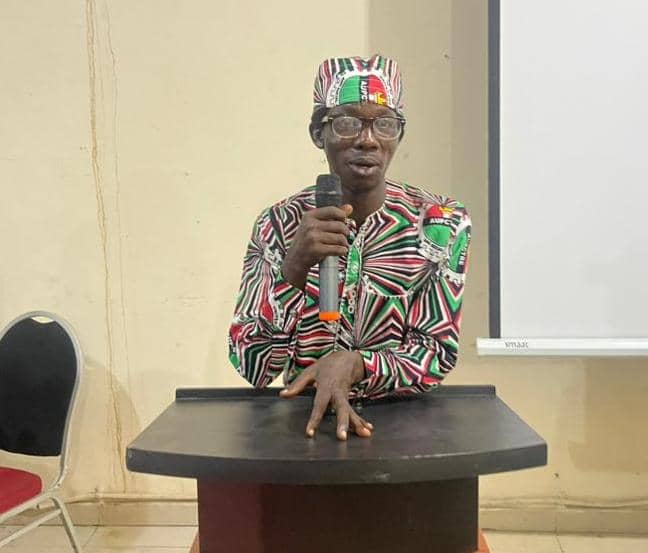
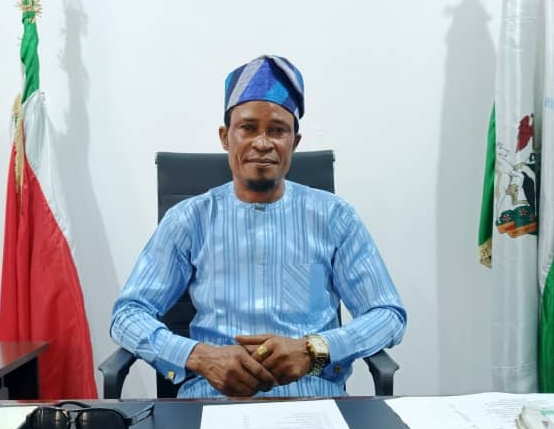
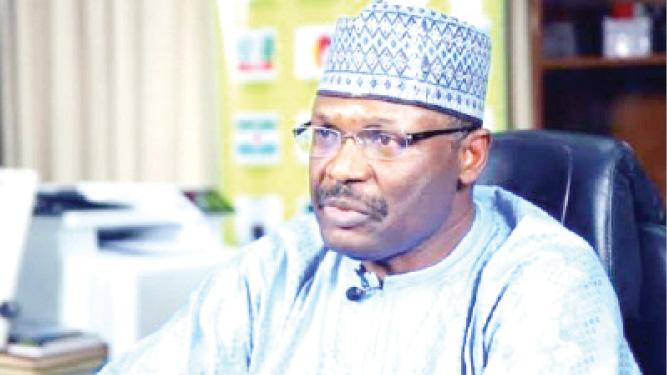

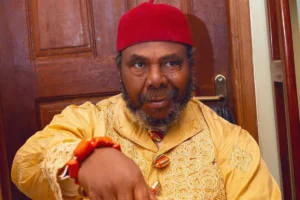
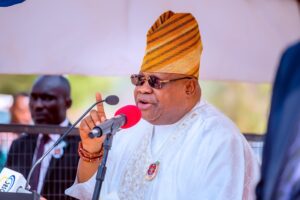






Post Comment